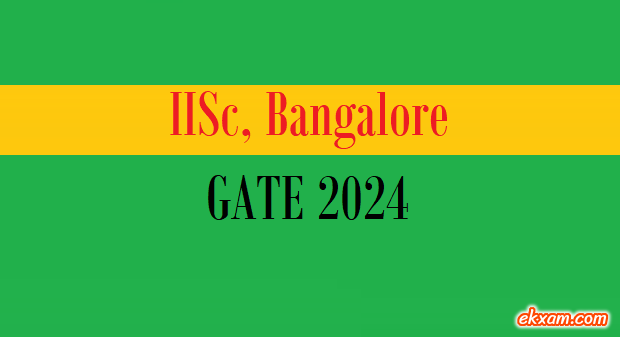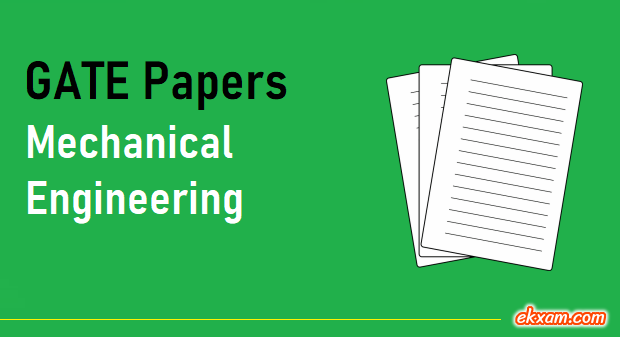Advertisements
Ratings
GATE PH Syllabus 2024 – GATE 2025 exam will be conduct by IIT, Roorkee on dates 1, 2 and 8, 9 February, 2025.
Here we have provided latest Physics syllabus & paper pattern for GATE 2024 aspirants. All candidates with Physics subject are advised to download this latest syllabus before starting their GATE 2024 exam preparation.
Contents
GATE 2025 Highlights
| GATE 2025 Conducting Body | IIT, Roorkee |
| GATE 2025 Exam Date | 1, 2, 8, 9 February, 2025 |
| GATE 2025 Total Subjects | 30 |
| GATE 2025 Exam Mode | ONLINE Computer Based Test (CBT) |
| GATE 2025 Exam Duration | 3 hours (180 minutes) |
| GATE 2025 Total Questions | 10 (GA) + 55 (subject)= 65 |
| GATE 2025 Total Marks | 100 |
| GATE 2025 Question Type | MCQ, MSQ, NAT |
GATE Physics Engineering Paper Pattern 2024
| Paper Sections | Marks Distribution |
|---|---|
| Subject Questions | 85% of the total marks. |
| General Aptitude | 15% of the total marks. |
GATE Physics Engineering Syllabus 2024 PDF
| General Aptitude Syllabus (Common to all papers) [pdf] | Download |
| GATE Syllabus for Physics (PH) [pdf] | Download |
GATE Physics Syllabus for Core Subjects 2024
| Subjects | Syllabus |
|---|---|
| Mathematical Physics |
|
| Classical Mechanics |
Special Theory of Relativity:
|
Electromagnetic Theory |
|
| Quantum Mechanics |
|
| Thermodynamics and Statistical Physics |
|
| Atomic and Molecular Physics |
|
| Solid State Physics |
|
| Electronics |
|
| Nuclear and Particle Physics |
|
GATE Physics Engineering Guidance
- How to Prepare for GATE Physics: A Comprehensive Guide
- GATE 2025 Books: Physics
- GATE PH Syllabus 2025: Physics
- GATE PH Previous Year Solved Papers – (2023-2007)
GATE Physics Syllabus & Exam Pattern FAQs
What is the syllabus for GATE Physics?
The syllabus for GATE Physics includes subjects like Mathematical Physics, Classical Mechanics, Electromagnetic Theory, Quantum Mechanics, Thermodynamics and Statistical Physics, Atomic and Molecular Physics, Solid State Physics, and Nuclear and Particle Physics.
Is the GATE Physics syllabus subject to change?
The core subjects of the GATE Physics syllabus remain relatively stable. However, it's important to check the official GATE website for any updates or changes in the syllabus before starting your preparation.
Are there any specific topics within each subject that are more important for GATE Physics?
While the entire syllabus is important, some topics carry more weightage than others. For example, in Mathematical Physics, topics like Linear Algebra, Calculus, and Complex Analysis are crucial.
In Quantum Mechanics, topics like Wave-particle duality, Schrödinger equation, and Angular momentum are significant.
What is the exam pattern for GATE Physics?
The GATE Physics exam consists of a total of 65 questions, with a duration of 3 hours. The question paper is divided into two sections: Multiple Choice Questions (MCQs) and Numerical Answer Type (NAT) questions.
MCQs carry 1 or 2 marks each, while NAT questions carry 1 or 2 marks each. There is negative marking for incorrect answers in MCQs.
Is there a specific weightage assigned to each subject in the GATE Physics exam?
No, there is no specific weightage assigned to each subject. The distribution of questions can vary from year to year.
However, it is generally observed that questions related to core subjects like Quantum Mechanics, Electromagnetic Theory, and Thermodynamics have a significant presence in the exam.
Are there any recommended books or resources to cover the entire GATE Physics syllabus?
Some popular books for GATE Physics preparation include 'Introduction to Electrodynamics' by David J. Griffiths, 'Quantum Mechanics: Concepts and Applications' by Nouredine Zettili, 'Statistical Mechanics' by R.K. Pathria, and 'Solid State Physics' by Ashcroft and Mermin. Additionally, previous years' question papers and study materials from reputed coaching institutes can be helpful.
Are there any specific reference books for numerical problem-solving in GATE Physics?
Yes, books like 'Mathematical Methods for Physics and Engineering' by K.F. Riley, M.P. Hobson, and S.J. Bence, 'Quantum Mechanics: Concepts and Applications' by Nouredine Zettili, and 'Statistical Mechanics' by R.K. Pathria provide insights into numerical problem-solving in Physics.
Is it necessary to study Solid State Physics for the GATE Physics exam?
Yes, Solid State Physics is an important topic in the GATE Physics syllabus. It's essential to have a basic understanding of concepts such as Crystal Structure, Band Theory, and Semiconductor Physics.
Are there any online resources or mock tests available for GATE Physics preparation?
Yes, there are several online platforms and websites that offer free and paid resources for GATE Physics preparation. Some popular ones include Gradeup, GateForum, and Made Easy.
These platforms offer online lectures, study materials, and mock tests specifically designed for GATE Physics.
Related Links
- GATE 2025 Books: Physics
- GATE PH Syllabus 2025: Physics
- GATE PH Previous Year Solved Papers – (2023-2007)
Recent Posts
- AAI Through GATE 2024 – JE (Junior Executive)
- M Tech and MS Programs Through GATE and GRE: Navigating Postgraduate Options
- Job Opportunities After GATE 2024 in India: What You Didn’t Know!
- BSPHCL Through GATE 2024 – 40 AEE
Related Tags
Gate ph syllabus pdf free download 2025, Gate ph syllabus pdf download 2025, Gate ph syllabus pdf 2025, Gate ph syllabus 2025, gate physics syllabus pdf 2025, gate syllabus 2025, gate physics syllabus pdf 2025, gate physics syllabus 2025
| GATE (Reasoning & Aptitude & Maths) Books |
| GATE Guide Books |
GATE Total Information & Guidance
Click below given links to get further information.





